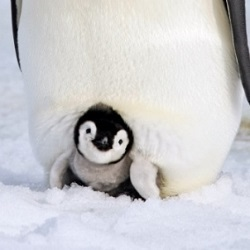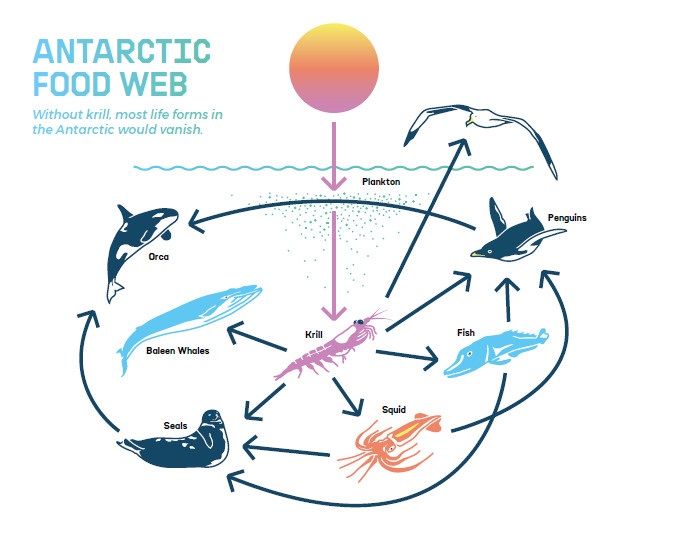Krill No More – How Krill Oil is Destroying our Environment and Hurting our Fish, Penguins & Whales
Author: Wholesome Hub Date Posted:23 August 2018
[@access_control@] [@article_id@] [@blog_author@] [@blog_content@] [@blog_id@] [@blog_subheader@] [@blog_subject@] [@category_id@] [@category_name@] [@category_ref@] [@category_subheader@] [@ccat_id@] [@compat_id@] [@compat_list_id@] [@compatcat_description@] [@compatcat_description2@] [@compatcat_fullname@] [@compatcat_name@] [@compatcat_ref@] [@content@] [@content_allow_reviews@] [@content_author@] [@content_compatibility_code@] [@content_description1@] [@content_description2@] [@content_description3@] [@content_external_ref1@] [@content_external_ref2@] [@content_external_ref3@] [@content_external_src@] [@content_fullpath@] [@content_id@] [@content_label1@] [@content_label2@] [@content_label3@] [@content_level@] [@content_module@] [@content_name@] [@content_ref@] [@content_short_description1@] [@content_short_description2@] [@content_short_description3@] [@content_type_code@] [@content_type_id@] [@content_type_name@] [@content_wufoo_form@] [@date_posted@] [@date_updated@] [@description@] [@description2@] [@external_ref@] [@gp_restriction@] [@id@] [@name@] [@page_content@] [@page_editor@] [@page_header@] [@page_id@] [@page_index@] [@page_subheader@] [@parent_ccat_id@] [@parent_content_id@] [@parent_id@] [@rating@](CODE) [@rating_decimal@](CODE) [@rating_round_half@](CODE) [@reviews@](CODE) [@short_description@] [@sortorder@] [@subtitle@] [@templatebody@] [@templatefoot@] [@templatehead@] [@templatesearch@] [@thumb@](CODE) [@thumb_alt@](CODE) [@thumb_alt1@](CODE) [@thumb_content_type_id@] [@timestamp@] [@title@] [@url@]

We all want to get healthy right? And Omega 3 Oils are great for us right? And with Krill Oil having a high level of Omega 3s, we should all be taking Krill Oil Supplements? NOOO!!!!!! Penguins, whales, seals, fish and in fact our whole eco-system depends We all want to get healthy right? And Omega 3 Oils are great for us right? And with Krill Oil having a high level of Omega 3s, we should all be taking Krill Oil Supplements? NOOO!!!!!! Penguins, whales, seals, fish and in fact our whole eco-system depends
We all want to get healthy right? And Omega 3 Oils are great for us right? And with Krill Oil having a high level of Omega 3s, we should all be taking Krill Oil Supplements? NOOO!!!!!! Penguins, whales, seals, fish and in fact our whole eco-system depends on krill for survival so it’s time we stop krill farming and ban krill supplements. See why to krill is to kill.
Fish and seafood are a rich source of omega 3 fatty acids, a healthy fat that we need to protect against heart disease, strokes, dementia, depression and loss of vision. But for many reasons, many of us are now choosing to take omega 3 supplements to get our daily recommended dose of this essential ingredient. This might be because we’re vegan or because we simply don't like fish. Or it might be because we’ve been put off eating fish after reading reports on the high levels of mercury and other heavy metal contaminants they potentially contain.
Omega 3 supplements come in a few different forms, one being krill oil supplements. Krill oil is very high in a form of omega 3 that the human body can easily absorb. So at first look, krill oil supplements appear to be a healthy and alternative source of omega 3. But the environmental impact of removing krill from the ocean to make these supplements is devastating...
Tiny But Crucial for the Food Chain
Krill are tiny sea creatures, that grow to around 5 centimetres in length. But despite their small size, collectively, they’re the drivers of oceanic ecosystems.
FISH, PENGUINS AND EVEN ENORMOUS SEA LIFE SUCH AS BLUE, MINKE AND HUMPBACK WHALES RELY ON KRILL AS FOOD.
This makes these teeny bug-eyed, transparent-pink shrimp-like organisms a key part of the food chain. Even animals that don’t directly feed on krill, feed on other animals that do, such as leopard seals and albatross, who eat fish that eat krill.
It’s mind boggling to think how many krill a blue whale needs to consume daily to sustain its huge size. It’s estimated at around two tonnes per whale, per day. So it’s safe to say, that in order to keep whales and other sea life happy, our oceans depend on a humongous number of krill. In fact, krill hang out together in their billions, and on a good day, these gangs can be seen from space as a huge pink cloud floating on the ocean.
WITHOUT KRILL MOST LIFE FORMS IN THE ANTARCTIC WOULD VANISH
Krill themselves feed on microscopic algae at night, whilst their own predators are at a safe distance down below. These algae are called phytoplankton and they float on the surface of the seas using sunlight and carbon dioxide as their own energy source. Krill reside in the lower waters by day, and rise to the surface to feed by night. In doing so, krill remove the carbon dioxide, a greenhouse gas caught up inside the phytoplankton, from the atmosphere and deposit it via their faeces, deep down in the waters when they return.

(Source: Greenpeace Report: Licence to Krill. The little-known world of Antarctic fishing)
The Downside of Krill Fishing
Most krill that is used to produce krill oil capsules comes from the waters around the Antarctic. These krill are already reducing in number due to climate change - as the global temperatures rise, the polar ice caps are melting, which is reducing the level of ‘ice algae’, another form of algae that krill depend on. But the appetite for krill oil supplements is a far bigger foe…
WHAT IS MARKETED AS A FOOD SUPPLEMENT, FULL OF HEALTH BENEFITS, SIGNALS DESTRUCTION FOR OUR OCEAN AND ITS INHABITANTS.
A recent study by Greenpeace found that fishing for krill on an industrial scale around Antarctica is having a disastrously negative impact.
Greenpeace studied the way krill fishing boats operate and found them frequently fishing in “the immediate vicinity of penguin colonies and whale feeding grounds”. So that means they’re literally plundering krill from the oceans, and from the creatures that are are already suffering as a result of climate change.
Krill harvesting involves huge boats that often stay in these waters for long periods of time. There’s a risk of oil spills and groundings, which Greenpeace say poses a serious threat to the Antarctic ecosystem. Then, when smaller boats arrive to remove the haul from the larger boats to take back to land, a process known as ‘transhipment’, there’s an even bigger risk of accidents. There must also be a question mark raised over the conditions of the people working on the larger boats that stay in the chilly waters of the Antarctic.
A Global Ban on Krill Oil Supplements?
So, we know that krill numbers are dwindling, due to a combination of industrial fishing and global warming. According to the National Geographic, levels of krill have plunged 80% since the 1970s.
We also know that dwindling food stocks, poses a threat to the wellbeing of penguins, whales and the other sea creatures that rely on krill as their main, and sometimes only, source of food. Plus, we know that the very presence of the fishing trawlers that suck krill from the waters of the Antarctic are causing stress to the local environment and ecosystems there.
This has prompted many leading retailers, particularly in the UK, to stop the sale of krill oil supplements. There is also a global campaign, headed by Greenpeace to create the world’s largest sanctuary around the waters of the Antarctic. If it goes ahead, 1.8 million square kilometres of the Weddell Sea and the Antarctic Peninsula would be protected.
This would mean a halt to krill fishing, and other damaging industrial activities in the area, safeguarding the future of krill stocks, and the creatures that feed on them. Signing the Greenpeace petition for the sanctuary will go towards helping it’s creation become a reality.
But What Would This Mean In Terms of Omega 3 Supplements?
The answer to this is in the algae that krill and other fish feed on. It’s the algae that is actually the source of omega 3 in the first place. Not the krill, or in fact the oily fish that are high in omega 3. It’s what they eat that makes them rich sources of this essential fatty acid, so why don't we go straight to the algae?
Well, we can! There are plenty of algae based omega 3 supplements on the market. Or, we can fill up on delicious, sustainably caught omega 3 rich Fish4Ever Fish. Every Bit Organic Raw Flaxseed Oil is a vegan friendly, high omega 3 food too.
Saving the oceans isn't only about avoiding single use plastics (which is extremely important!). Ditch the krill oil supplements too, and play an even bigger part in the health and future of our seas!







